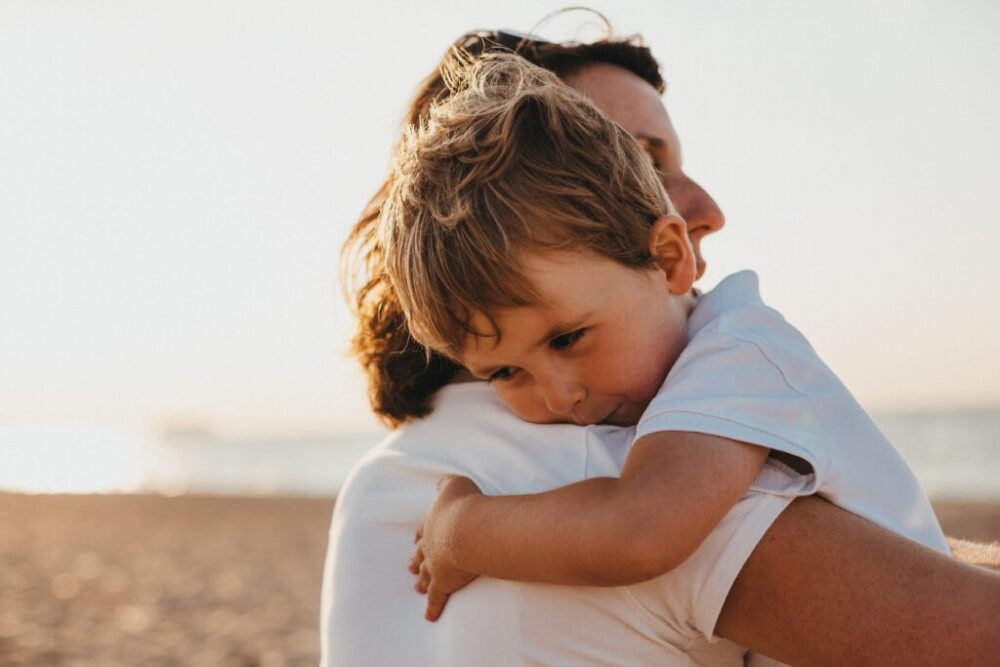
I once sat with a friend whose child’s needs are so severe, it’s almost impossible for my friend to feel connected to them. Or to feel like they’re offering their child much of value.
Grief, alienation, and anger creased my friend’s features.
I prayed silently while my friend told their story. What did I even have to offer this depth and breadth of pain other than that and my presence?
I asked my friend, “At the risk of oversimplifying God’s ways—has he given you any idea of why he gave [this child’s name] to you guys?”
My friend’s answer was quick; they’d thought of this before. “I have no idea. I mean, I know it was for a reason. But I’m just trusting.” They shrugged.
When everything feels like a mistake
I do think God handed me one realization for that moment. When in doubt, more and more, God seems to ask me how I could apply the Gospel to a certain situation. Wisdom, in no small part, starts there.
I softly articulated that I believed what my friend is doing is a deep work of the gospel.
Their love plays out God’s generous, compassionate, steadfast love with no fire escape to this child (hesed covenant love, in the Old Testament Hebrew). And not just to a child most likely to, say, be a contributing member of society, or one who “gives back” to their parents.
That afternoon, I decided to get curious about areas in my own parenting when my sinful side, my flesh, wondered if there had been a mistake in the kids I’d been given, or the parent they’d been given in me.
Like the time my first (of three, it turned out) child was diagnosed with ADHD. These kids thrive on structure, I read. A parent like my mom was so much better at that; certainly, I thought, not an inherent creative like yours truly. (This, of course, turned out not to be true.)
What I got wrong about the goal of Christian parenting
As I reflected on that conversation with my friend, a blanket wrapped around me on my front porch, I realized part of what I got wrong, however subtly, was in my initial goal of my parenting.
See, I would have told you the goal of godly parenting is to raise godly kids who love Jesus with their lives.
Yes, of course this is still true. But it’s not the goal for me anymore.
I also believe God gives us kids to replay the gospel over and over in our homes.
That plays out in, say,
- Creating a culture of “I’m sorry/I forgive you” in our families.
- Our kids—and us—showing and experiencing covenant love to each other, even when it’s least deserved.
- In moments of anger and conflict, coming toward each other, like he came toward us.
- Returning a blessing in the face of an insult (1 Peter 3:9).
I’m talking love that goes the distance when one of us is far.
And when a part of me wondered if some mistake had been made—like heartbreaking high-stakes decisions my kids made as teens—doubt rolled in like storm clouds because honestly, the pain felt exquisite.
Surely, I thought, I got wrong something else. Love, in my mind, just couldn’t feel this gross. Or suspiciously resemble such sweeping failure, or holes punched into their future. Or like my friend, couple itself with unspeakable grief.
Think bigger
But doesn’t that describe God’s role with his kids in the Old Testament, and culminating at the cross? Weren’t they ignorant, outright rebellious, unfaithful, unseeing in the face of sheer love?
And wasn’t he still glorified as he loved them, and loved them again? As he continued to lean in, even in their blind mutiny?
Rather than perfection, my home thrives beneath the life-altering power of undeserved mercy and kindness to each other.
I’ll say it differently about what I got wrong: My perfect parenthood is also not the goal. Nor are perfect children. The world needs something far more powerful in my home.
Like this post? You might like
What the World Needs More Than Our Perfect Kids








3 Comments
Brian - 2 years ago
I really benefit from your writings, Janel. I appreciate and respect your perspective and your Biblical – Christian values
Janel - 2 years ago
Thanks so much for the warm words, Brian. This makes my day. Praising God over here!
Udalenie_aret - 2 years ago
Что делать, если после удаления бородавки появились новые?
Если после удаления бородавки появились новые, это может указывать на активное размножение вируса папилломы человека (ВПЧ). Рекомендуется повторно обратиться к врачу для оценки состояния и подбора более эффективного метода лечения или профилактики.
What to do if new warts appear after removal?
If new warts appear after removal, it may indicate active multiplication of the human papillomavirus (HPV). It is recommended to consult a doctor again to assess the condition and choose a more effective treatment or prevention method.
чем вывести бородавку на пальце epilstudio.ru/udalenie-borodavok .